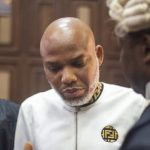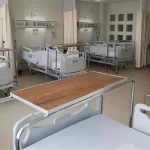By Chioma Obinna
To stem the rising cases of Cardiovascular Diseases, CVDs, in Nigeria, health experts have called for a comprehensive examination of all patients who present at the hospital even as they harped on improved medical residency training to boost health services and the well-being of Nigerians.
Speaking in Lagos during the Society of Family Physicians of Nigeria, SOFPON, Scientific Conference, they noted that efforts should be made to reduce the alarming increase of cardiovascular diseases among Nigerians.
At the conference with the theme: “Residency Training in a Service-Oriented Environment amidst Dwindling Human Resources for Health-Challenges and Way Out”, a Consultant Cardiologist, Dr Oladapo Adewuya who presented the subtheme, ‘Stemming the Tide of Cardiovascular Diseases’, explained that CVDs are diseases that affect the heart or blood vessels and undetected, untreated, it could lead to stroke, heart attack or avoidable deaths.
Adewuya who works at R-Jolad Hospital, Gbagada, Lagos, disclosed that one in three Nigerians have cardiovascular diseases, adding that a recent research showed a 150 per cent increase in prevalence of cardiovascular diseases in South-West Nigeria.
He added that CVDs were preventable and reversible when identified early, advising Nigerians to shun tobacco use, unhealthy diet, obesity, physical inactivity and harmful use of alcohol.
According to him, cardiovascular diseases have led to many avoidable deaths, while information, education and communication to the public should be enhanced.
”I have seen a 25-years-old man suffer a myocardial infarction (heart attack) from using a sexual enhancement drug bought on the street.” He advised family physicians to intensify efforts in educating the public to stop risky behaviours.
He said: “A family physicians have a role to play in curbing the rising trend and reducing the workload of the few available cardiologists. They could do so by requesting a baseline investigation of every patient to detect and reduce the prevalence of CVDs in Nigeria.
On his part, the Lagos State Chairman, of the Nigerian Medical Association, NMA, Dr Benjamin Olowojebutu, stressed the need for collaborative efforts to stem the prevalence of cardiovascular diseases.
Olowojebutu said that more than 6,000 medical doctors left Nigeria in the last one year, noting that even mentors were leaving.
He further called for more training institutions for family medicine in Nigeria as family medicine was the first point of call in hospitals.
He lamented that the level of commitment to the medical residency training and mentorship has reduced.
Speaking, Chairman, SOFPON, Lagos Chapter, SOFPON, Dr Sixtus Ozuomba noted that residency training in a service-oriented environment was a huge challenge to both the trainer and the trainee.
Ozumba said the excellence in service must not be sacrificed in the pursuit of academic excellence.
According to him, “the bad situation is worsened by the fast dwindling human resource for health, occasioned by the rapid efflux of medical personnel of all cadres to the western world in search of better livelihood.
”The healthcare workers that stay behind, like the proverbial willing horse, are ridden to exhaustion; overworked, underpaid, are faced with the escalating cost of living without a commensurate increase in remuneration.
”They have to contend with largely hungry and angry patients, and still have to contend with the pressure from their immediate bosses, who are not unaware of the situation, but have to align with political correctness and survival.
”The family physician because of his reputation for versatility and not being limited by systems, age or gender is the worst hit, as he is often called upon to fill the yawning gaps. We can’t continue to tell people to relax, take life easy, whereas the doctor giving the advice is doing the opposite. The doctor that’s expected to keep people alive, needs to be alive to do that.”
Ozumba urged the government to create an enabling environment, recruit more workers to replace the exited ones, invest in training and incentives for health workers to boost morale and productivity.
On cardiovascular diseases, he said the burden of cardiovascular diseases is on the rise in Nigeria, adding that family physicians, as the first contact doctors, were becoming crucial in the treatment and control of CVDs in individuals, families and communities.
On his part, the Vice-Chancellor, Lagos State University of Science and Technology, Ikorodu, Prof. Olumuyiwa Odusanya explained that the residency training programmes enable graduates of medical colleges the opportunity to advance their knowledge in a medical or surgical specialty.
Odusanya said that residency trainees in Nigeria were exposed to multifaceted challenges that included demographic, workplace and psychosocial issues which made them contemplate emigration.
He noted that many had emigrated in search of better job satisfaction, working conditions, remuneration, career progression, professional advancement, and improved quality of life.
Odusanya appealed to policymakers and managers of health facilities to tackle these challenges, noting that the solutions would stimulate development in the nation’s health sector.
Also speaking, Dr Atinuke Onayiga, Chairman, Lagos State Health Service Commission, said the state government prioritised human resources for health, human capital development and medical infrastructure development as a means of achieving the Health and Environment mandate of its THEMES agenda.
Onayiga noted that Lagos was the only state that took bold steps in establishing training for family medicine and anaesthesia at the hospital level.
She said that effort should be made to improve the retainership strategy and also attract Nigerian doctors back to the country.
” Nigeria is already on an economic recovery trajectory to woo more investors, allow systems to become more vibrant and I believe this would enhance our health system and human resources,” she said.
Source: Vanguard








